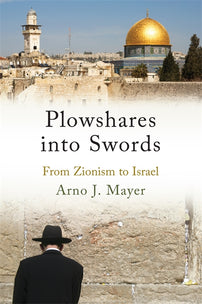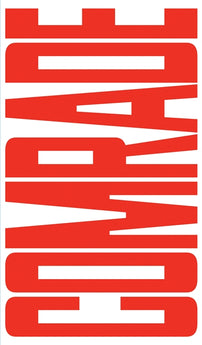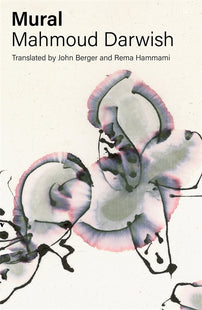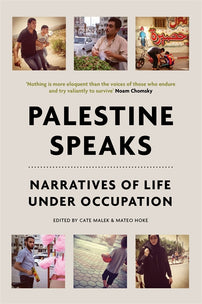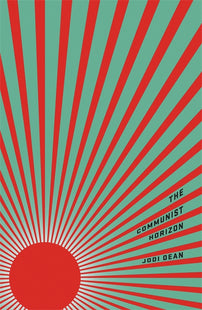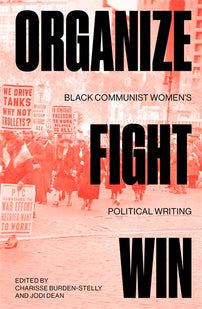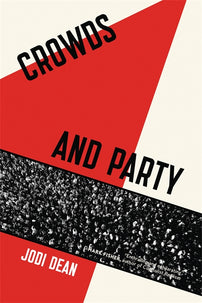Palestine speaks for everyone
Against those who would separate good and bad Palestinians resisting occupation and onslaught, Jodi Dean writes in defence of the radical universal emancipation embodied in the Palestinian cause.

Since the initial publication of this essay, Jodi Dean has been publicly condemned by the president of her institution and “relieved of classroom duties.” This clear violation of basic academic freedoms is but one instance of the larger and sustained effort to repress expressions of solidarity with the Palestinian liberation struggle taking place in colleges and universities in the United States and elsewhere. A petition for Jodi Dean’s reinstatement can be found here.
See all of Jodi Dean's books here.
The images from October 7 of paragliders evading Israeli air defenses were for many of us exhilarating. Here were moments of freedom, that defeated Zionist expectations of submission to occupation and siege. In them, we witnessed seemingly impossible acts of bravery and defiance in the face of the certain knowledge of the devastation that would follow (that Israel practices asymmetric warfare and responds with disproportionate force is no secret). Who could not feel energized seeing oppressed people bulldozing the fences enclosing them, taking to the skies in escape, and flying freely through the air? The shattering of the collective sense of the possible made it seem as if anyone could be free, as if imperialism, occupation, and oppression can and will be overthrown. As the Palestinian militant Leila Khaled wrote of a successful hijacking in her memoir, My People Shall Live, “it seemed the more spectacular the action the better the morale of our people.” Such actions puncture expectations and create a new sense of possibility, liberating people from hopelessness and despair.
When we witness such actions many of us also feel this sense of openness. Our response is indicative of the subject effect the actions unleash: something in the world has changed because a subject has inscribed a gap in the given. To use an idea from Alain Badiou, we see that the action was caused by a subject, thus producing that subject as a retroactive effect of the action that caused it. Imperialism tries to shut these feelings down before they spread too far. It condemns them and declares them off limits.
The images of Palestinians that see we in our imperialist settings are usually pictures of depictions of devastation, bereavement and death. The humanity of the Palestinians is made conditional on their suffering, on what they’ve have lost, and what they endure. Palestinians get sympathy but not emancipation; emancipation would eat away at sympathy. This image of the victim produces the “good” Palestinian as a civilian, even better as a child, woman, or elder. Those who fight back, especially as part of organized groups are bad: the monstrous enemy that must be eliminated. But everyone’s a target. The fault for the targeting of the “good” Palestinians is thus placed on the “bad “ones, further justification for their eradication: every inch of Gaza provides a hiding place for terrorists. The policing of affect squeezes out the possibility of a free Palestinian.
Policing affect is part of the political struggle. Anything that ignites the feeling that the oppressed will break free, that occupations and blockades will end, must be extinguished. Imperialists and Zionists reduce October 7 to a list of horrors not simply to block from view the history and reality of colonialism, occupation, and siege. They do it to prevent the gap of the disruption from producing the subject that caused it.
The first intifada, in 1987, began with the “Night of the Gliders.” On November 25 and 26, two Palestinian guerrilla fighters from the PFLP – GC (Popular Front for the Liberation of Palestine – General Command) landed in Israeli occupied territory. Both were killed. One of them killed six Israeli soldiers and injured seven more before he died. Afterwards, the guerrilla became a national hero, and Gazans wrote “6:1” on their walls to taunt the IDF troops. Even PLO Chairman Yasser Arafat praised the fighters: “The attack demonstrated that there could be no barriers or obstacles to prevent a guerrilla who has decided to become a martyr” Nothing could hold them down or block them in if they had the will to fly. The Night of the Gliders reignited the affective energies of the Palestinian revolution that followed in the wake of Arab defeat in June 1967 and stimulated the growth of the guerrilla movement after the battle of Karama in March 1968. After the Night of the Gliders and into the first intifada, to be Palestinian again meant rebellion and resistance rather than acquiescence to second-class citizenship and refugee status.
In 2018, during the Great March of Return, Gazans used kites and balloons to evade Israeli air defenses and start fires in Israeli territory. It seems as if it was Palestinian youth that first started sending the fire kites. Later, Hamas got involved, creating the al-Zouari unit that specialized in making and launching incendiary kites and balloons. The kites and balloons boosted morale in Gaza, while damaging the Israeli economy and irritating Israelis living near the Gazan border. In response to an Italian journalist’s remarks about the “iconic new weapon” that was “driving Israel crazy,” Hamas leader Yahya Sinwar explained, “Kites are not a weapon. At most, they set on fire some stubble. An extinguisher, and it's over. They are not a weapon, they are a message. Because they are just twine and paper and an oil-soaked rag, while each battery of the Iron Dome costs $100 million. Those kites say: you are immensely more powerful. But you will never win. Really. Never."
There’s further context for reading kites in Gaza as messages from a people that refuses to submit. In 2011, 15 thousand Palestinian children on a Gazan beach broke the world record for the most kites flown at the same time. Many of the kites featured Palestinian flags and symbols, as well as wishes for peace and hope. An eleven-year-old, Rawia, who made her kite the colors of the Palestinian flag, said, “When I fly it, I feel like I’m raising my country and my flag up, up in the sky.” The 2013 documentary “Flying Paper,” directed by Nitin Sawhney and Roger Hill, tells the story of some of the young kite fliers. “When we fly kites, we feel like we are the ones flying in the sky. We feel that we have freedom. That there is no siege on Gaza. When we fly the kite, we know that freedom exists.” Earlier this year, kites were flown at solidarity demonstrations that took place around the world, expressing and amplifying a hope and a will for Palestinian freedom.
Refaat Alareer’s last poem, “If I Must Die,” draws on the association of kites and hope. A video of Brian Cox reading the poem circulated online after the IDF killed Alareer in an airstrike that demolished his building.
If I must die,
you must live
to tell my story
to sell my things
to buy a piece of cloth
and some strings,
(make it white with a long tail)
so that a child, somewhere in Gaza
while looking heaven in the eye
awaiting his dad who left in a blaze —
and bid no one farewell
not even to his flesh
not even to himself —
sees the kite, my kite you made, flying up above,
and thinks for a moment an angel is there
bringing back love.
If I must die
let it bring hope,
let it be a story.
The kite is a message of love. It is made to fly, and in flying it creates hope. Alareer’s words attend to the making of the kite, its crafting out of cloth and strings, as well as its flight. Making the kite is more than mourning; it’s an engagement in practical optimism, an element of the subjective process that establishes the subject of a politics, the “you” instructed to make the kite and tell his story.
In 1998, Palestinians built Yasser Arafat International Airport. In 2001, during the second intifada, Israeli bulldozers demolished it. As Hind Khoudary explained, the airport was deeply interconnected with the dream of Palestinian statehood. She interviewed workers who built the runway that was reduced to rubble and sand. As Khoudary writes, “Gaza airport was more than a project. It was a symbol of freedom for Palestinians. Flying the Palestinian flag in the sky was the dream of every Palestinian.”
The paragliders who flew into Israel on October 7 continue the revolutionary association of liberation and flight. Although imperialist and Zionist forces try to condense the action into a singular figure of Hamas terrorism, insisting against all evidence that with the extermination of Hamas Palestinian resistance will disappear, the will to fight for Palestinian freedom precedes and exceeds it. Hamas wasn’t the subject of the October 7 action; it was an agent hoping that the subject would emerge as an effect of its action, the latest instantiation of the Palestinian revolution.
Words used by Leila Khaled to defend the justness of the PFLP’s hijacking tactic apply equally to October 7. Khaled writes: “As a comrade has said: We act heroically in a cowardly world to prove that the enemy is not invincible. We act "violently" in order to blow the wax out of the ears of the deaf Western liberals and to remove the straws that block their vision. We act as revolutionaries to inspire the masses and to trigger off the revolutionary upheaval in an era of counter-revolution.”
How can an oppressed people believe that change is possible? How can movements that have experienced decades of defeat ever feel like they are capable of winning? Sara Roy documented the despair that pervaded Gaza and the West bank before October 7. Factionalism, and the sense that not just Fatah but Hamas was cooperating too much with Israel, had unraveled confidence in a nationally unifying project. A friend told Roy, “Our past demands have become meaningless. No one speaks of Jerusalem or the right-of-return. We just want food security and open crossings.” Al Aqsa flood attacked that despair. The coalition of resistance fighters led by Hamas and PIJ (Palestinian Islamic Jihad) refused to accept defeat and submit to the indignity of slow death. Their action was designed so that the revolutionary subject would appear as its effect.
***
In the six months since the beginning of Israel’s genocidal war on Palestine, there has been a surge in global solidarity with Palestine, one reminiscent of the previous wave of the 1970s and 1980s. As Edward Said told us, by the end of the seventies “there was not a progressive political cause that did not identify with the Palestinian movement.” Solidarity with Palestine united the left, knitting liberation struggles together in a global anti-imperialist front. As historian Robin D.G. Kelly says, “We radicals regarded the PLO as a vanguard in a global Third World struggle for self-determination traveling along a “non-capitalist road” to development.” The militancy and dedication of the Palestinian struggle made its revolutionary combatants models for the left.
The struggle for Palestinian liberation today is led by the Islamic Resistance Movement — Hamas. Hamas is supported by the entirety of the organized Palestinian left. One might have expected that the left in the imperial core would follow the leadership of the Palestinian left in supporting Hamas. More often than not, though, left intellectuals echo the condemnations that imperialist states make the condition for speaking about Palestine. In so doing, they take a side against the Palestinian revolution, giving a progressive face to the repression of the Palestinian political project, and betraying the anti-imperialist aspirations of a previous generation.
[book-strip index="1"]
Judith Butler’s October 19 essay in the London Review of Books is a prime example. Rather than placing the seventy-five-year Nakba and Palestinian resistance in the centre of their analysis, Butler criticizes Harvard students for exonerating Hamas’s hideous killings. Harvard Palestine Solidarity groups had issued a statement holding the Israeli regime “entirely responsible for all unfolding violence.” Butler’s essay foreshadowed an attitude that would soon overtake academia, as happened at Columbia, Cornell, Penn, Harvard, the University of Rochester, and elsewhere. It displaced attention from the reality of genocidal violence in Gaza and onto the affective environment of safe and privileged US universities. Butler’s targeting of the students – their language and feeling, how they expressed themselves – modeled in advance the congressional hearings that led to the resignations of the presidents of both Harvard and Penn.
Against the Harvard students, Butler condemned “without qualification the violence committed by Hamas.” Butler does not think that such condemnation is the end of politics or that it precludes learning the history of the region. On the contrary, Butler insists that condemnation be accompanied by moral vision. Such a vision includes or may include equal grievability and rights to mourn as well as “new forms of political freedom and justice.” For Butler, though, this vision excludes Hamas. Butler treats Hamas as singularly responsible for October 7, ignoring the fact that the armed forces of multiple Palestinian groups participated in the action, thereby signaling a support for the action extending far beyond the military arm of the party that was democratically elected to govern Gaza. Moreover, Butler wants to be part of “imagining and struggling” for the kind of equality that “would compel groups like Hamas to disappear.” It is not clear what counts as being “like Hamas” for Butler, nor which characteristics are the ones that would target a group for being disappeared. If, for example, what matters is the violent use of force, then the liberation struggle of a colonized, occupied, and oppressed people is ruled out in advance. The political horizon that united progressive forces by the end of the seventies is foreshortened.
In wanting to “compel groups like Hamas to disappear,” Butler’s position overlaps with that of Joe Biden and Benjamin Netanyahu. Unlike them, though, Butler names and rejects the occupation. But Butler echoes their position, and their tactic of separating Hamas from Palestine and making Palestinian liberation conditional on this separation. When Hamas is the widely acknowledged and accepted leader of the struggle for a free Palestine, hoping for its dissolution is a failure of international solidarity. It strikes a blow against and drives a wedge into a front united in resistance to imperialism. Defending Hamas is so unconscionable as barely to be broached; it is headed off by condemnation in advance, as if to seal a door already closed and locked. “Siding with Hamas” is a charge, an excoriation, rather than the recognition of where one stands in a fundamental conflict.
Butler says that Hamas has “one terrifying and appalling answer” to the question of what world is possible after the end of settler-colonial rule. Butler doesn’t tell us what Hamas’s answer is. No mention is made of the political document the group issued in 2017, which, in the words of Tareq Baconi, “accepted the creation of a Palestinian state on the 1967 borders, UN Resolution 194 for the right of return, and the notion of restricting armed struggle to operate within the limits of international law.”[1] This document strikes me as neither terrifying nor appalling, even if it is hard to imagine given the proliferation of illegal Israeli settlements in the West Bank. On December 13, Butler issued an apology to the Harvard students. She acknowledged the possibility that Hamas is “a movement for armed resistance” that could be situated in a longer history of armed struggle, or at least that these are “important questions.” Defending the leader of the movement for Palestinian liberation remained off the table. On March 11, 2024, Butler said “Not all forms of ‘resistance’ are justified.”
Oppressed people fight back against their oppressors by every means necessary. They choose — and are forced to choose by the settings in which their liberation struggles take place — the strategies and tactics they need to win. How much dissent will the oppressor tolerate? How much force will the oppressor use to quash rebellion? How dependent is the oppressor on the compliance of the oppressed? How much moral opprobrium is the oppressor willing to absorb? To recognize the right to resist an oppressor, the right to national self-determination, means defending those willing and able to fight back against their oppressors. Such defense need not be uncritical — it is often that individuals, groups, and states find themselves in the political position of defending those with whom they disagree. But this defense must take its orientation from the oppressed in their struggle for liberation, not from the oppressor or from the larger imperialist order that enables and validates oppression. It has to root solidarity in “commonalities of resistance” rather than “commonalities of oppression,” to use Robin Kelley’s formulation. This idea isn’t new, it has a long history in anti-imperialist and national liberation struggles.
The decline in anti-imperialist solidarity apparent in positions like Butler’s reflects a broader depoliticization, a different, diminished, set of premises. These days — at least up until October 7 — people complain that the left doesn’t exist or, if not complaining, imagine left politics in terms of a multitude of singularities, innumerable individuals with all their specific choices and feelings. Even as appeals to intersectionality attempt to make connections between issues that four decades of neoliberal fragmentation have sought to keep apart, the liberal legal foundations of the concept too often position the individual as the intersection and the issues as questions of identity. Depoliticized at the level of organization, issues are repoliticized in and as individuals. What does an individual think? Does she feel comfortable expressing it? What expressions threaten this comfort and undermine her sense of safety? The constriction of politics to managing individual anxieties reframes self-centeredness as moral, whether on university campuses or in localities regulating public protests. This constriction is but one moment in the more general and systemic displacement of politics by moralism manifest in the substitution of aid work for militant political organization, administration for struggle, and NGOs and CSOs for revolutionary parties.
What we encounter is not depoliticization, it is defeat. Politics continues, but in a form structured by this defeat. Unable to constitute ourselves as a coherent side in the struggle against imperialism, we have trouble taking a side, failing to see or ask which side are we on? Even recognizing sides is dismissed as binary thinking or a childish inability to accept complexity and ambiguity.
***
The Popular Front for the Liberation of Palestine’s (PFLP) 1969 strategy document gives us a window into the political world evoked by Said and Kelley, one that Butler’s moralism not only occludes but, in its maintenance of Zionist and imperialist conditions for speaking, actively opposes. Drafted in 1967, following the Arab defeat in the June war, the text was the PFLP’s founding document. Central to it is the question of imperialism. Following the Second World War, the document states, the colonial capitalist forces gathered into one camp, led by US capital, while the socialist countries and liberation struggles comprised an opposing revolutionary camp. Through neo-colonialist techniques to contain national liberation struggles, the US attempted to realize its interests. Beyond this, the party observed, as the US invasions of Vietnam, Cuba, and the Dominican Republic proved, the US was perfectly willing to use armed force. After the US failed to prevent the Arab movement from fusing “with the world revolutionary camp,” US imperialism threw its military support behind Israel. This meant, for the PFLP, that the Palestinian struggle could not avoid confrontation with imperialism’s enormous power and technological advantage. As a matter of strategy, then, Palestine had no choice but to “enter into full alliance with all the revolutionary forces on the world level.”
The document states:
The peoples of Africa, Asia and Latin America are daily suffering the life of wretchedness, poverty, ignorance and backwardness, which is a result of colonialism and imperialism in their lives. The major conflict experienced by the world of today is the conflict between exploiting world imperialism on the one hand and these peoples and the socialist camp on the other. The alliance of the Palestinian and Arab national liberation movement with the liberation movement in Vietnam, the revolutionary situation in Cuba and the Democratic People’s Republic of Korea and the national liberation movements in Asia, Africa and Latin America is the only way to create the camp that is capable of facing and triumphing over the imperialist camp.
The political solution to the problem of Palestine thus necessarily unfolds as a global struggle against imperialism. The “we” of “we are all Palestinians” is the name of the side that fights for all of us. In the words of Ghassan Kanafani, the novelist, poet and founding member of the PFLP who was assassinated by Israel in 1972, quoted in the document’s 2017 introduction, “the Palestinian cause is not a cause for Palestinians only, but a cause for every revolutionary, wherever they are, as a cause of the exploited and oppressed masses in our era.”
[book-strip index="2"]
On a number of college campuses, the slogan “From the river to the sea, Palestine will be free” has been banned. There hjas even been an international debate over the slogan, another part of the war on feeling solidarity with Palestine and extinguishing the subjective process October 7 incited. What the imperialists should really get upset about is another slogan: “In our thousands, in our millions, we are all Palestinians.” This rejects fragmentation, recognizing the anti-imperialist subject as an effect of the Palestinian cause. It replaces the individualizing suppositions of neoliberal managerialism and humanitarianism with the divisive universalism of anti-imperialism.
Defending Hamas, we take the side of the Palestinian resistance, responding to a revolutionary subject — the subject fighting against occupation and oppression — and recognizing this subject as an effect of a contested and open process. Which side are you on? Liberation or Zionism and imperialism? There are two sides and no alternative, no negotiation of the relation between oppressor and oppressed. Oppression isn’t managed via enervating concessions to the norms of permitted speech; it’s overturned. The illusion of a middle and a multitude withers away as the division constitutive of the political appears in all its stark brutality.
This may suggest Carl Schmitt’s classic formulation of the political in terms of the intensification of the friend/enemy relationship. But where it differs is in its recognition of hierarchy. Colonial occupation and imperialist exploitation produce enmity; enmity isn’t the affective setting of equals in conflict. It’s not a war of all against all. It’s a war of oppressed against their oppressor, the rebellion of those whose right to self-determination is denied against those who deny it. The two sides employ radically different orders of meaning: from within one, the other appears crazed and monstrous, utterly nonsensical. There is no third point from which to assess the situation, no neutral sovereign authority or system of legality that is not swept onto one side or the other. Deaths cannot be tabulated and plugged into a calculation that would guarantee when it all evens out. History doesn’t determine the matter. Dates from which we begin to narrate the sequence of events aren’t simply alternatives. The division constitutive of the political goes all the way down.
It could be tempting to treat Palestine as the symptom of some larger failure — of international law, say, and the human rights regime or of the smooth world of globalized neoliberalism. Here Palestine would mark the point at which these systems come into contradiction with themselves, their constitutive exclusion. This temptation should be resisted. Law always encounters hard cases and implementation challenges without crumbling. Globalized neoliberalism has proliferated fragmentation, separation, and the perforation of political space into myriad individual zones. As Quinn Slobodian has demonstrated, decentralization has been one of the primary mechanisms for securing capitalist class interests. Palestine doesn’t name a symptom; it names a side in the struggle against imperialism. When the Palestinian resistance dramatically punctured its setting of occupation and oppression, the fact of this side reemerges. It confronts an order that wants to ignore it with the fact of a continued will to persist, to redress injustice, to reclaim what has been taken, and to be recognized as a people, a nation, a state with a right of self-determination. Palestine names a political subject.
A rich literature can be enlisted to fill out the idea of Palestinian political subjectivity. Key points might include: the centrality of resistance to the imagining of a national identity in the wake of the Nakba; the specificity of Palestinian religious diversity (Muslim, Christian, Jewish); and the dispersion of Palestinians across Israel, the occupied territories, and the diaspora. More compelling is the provocative claim that we are all Palestinians. This claim should not be understood as that kind of sentimental identification that says all forms of suffering are variations of the same suffering so we should all get along. Rather, it’s the political slogan of radical universal emancipation that responds to the subject as an effect of the Palestinian cause. Not everyone speaks for Palestine, but Palestine speaks for everyone.
Jodi Dean is the author of Crowds and Party, Comrade: An Essay on Political Belonging, Organize, Fight, Win: Black Communist Women's Political Writing, and The Communist Horizon.
See all our publishing on Palestine here, including books by Ilan Pappe, Gideon Levy, and Maya Wind.
[book-strip index="3"]
[1] Tareq Baconi, Hamas Contained, Stanford University Press, 2018. p. 245.
